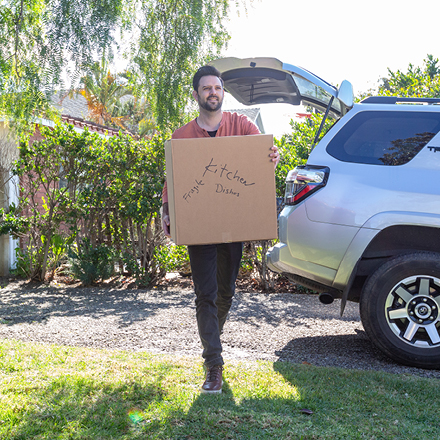- Insurance Guide
- Property Insurance
- What Is Renter's Insurance And Who Needs It
What is renter’s insurance for? Who needs renter's insurance?

Do you rent the house or apartment you live in? If so, you might think you don't need insurance because you don't own the building. After all, your landlord probably has coverage. But your landlord's insurance covers only his or her building, not your possessions. Without insurance of your own, you could be left to cover all of the expenses yourself if there is a fire or burglary.
That's what renters insurance is for. It provides no coverage for the building itself. Instead, it covers your personal property and protects you against liability claims if you rent a house or apartment.
Renters insurance coverage
So what kinds of damage does renters insurance cover? Renters insurance covers losses from things that can happen called perils, up to your policy’s limit. Some commonly covered perils include:
- Theft
- Fire or lightning
- Smoke
- Windstorm or hail
- Vandalism
- Broken glass
- Accidental discharge or overflow of water
- Freezing
Keep in mind that most renters insurance policies specifically exclude certain perils (for example, earthquakes and flooding). Depending on your situation, you may need to purchase a separate policy to insure your possessions against damage caused by these hazards.
You can purchase different levels of property damage coverage. As you increase your coverage level, your premiums increase as well. To know how much you need, you should take an inventory of your personal property—things can really add up. Estimate how much it would cost if you had to replace everything you owned in your apartment all at once.
Actual cash value vs. replacement cost
These terms are very important in determining how much money you will get if you ever have to file a claim. When you get a quote for renters insurance, make sure you know which type of coverage is being described.
Actual cash value coverage
This reimburses you for only the amount that your property was worth at the time it was stolen, damaged, or destroyed. This means that if all of your clothes suffer smoke damage in a fire, your insurance company may pay as much as you could've made selling them at a yard sale—not the thousands you spent over the last few years to create the perfect wardrobe.
Replacement cost coverage
This reimburses you for the amount that it will cost to replace your property. If you bought a $1000 sofa two years ago, you'll receive enough money to go out and buy another sofa just like the old one. You may have to replace the lost property with your own money and submit the receipt before you receive compensation.
Replacement cost coverage typically costs more than actual cash value coverage, but it also usually pays more, too, and may be worth the extra money.
Liability coverage
With renters insurance, you also get liability coverage. A typical renters insurance policy covers you for accidents and injuries that occur in your home, as well as accidents outside of your home that are caused by you or your property. (This does not include automobile accidents.) This liability coverage sometimes includes legal defense costs, if you are taken to court over this type of accident. The amount of liability coverage that you need depends on your individual circumstances.
Typical renters insurance cost
It depends. The cost of renters insurance is based on where you live, the construction of the building, your deductible, whether your policy pays actual cash value or replacement cost, and how much insurance coverage you need. It’s up to you to decide how much insurance is right for you.



